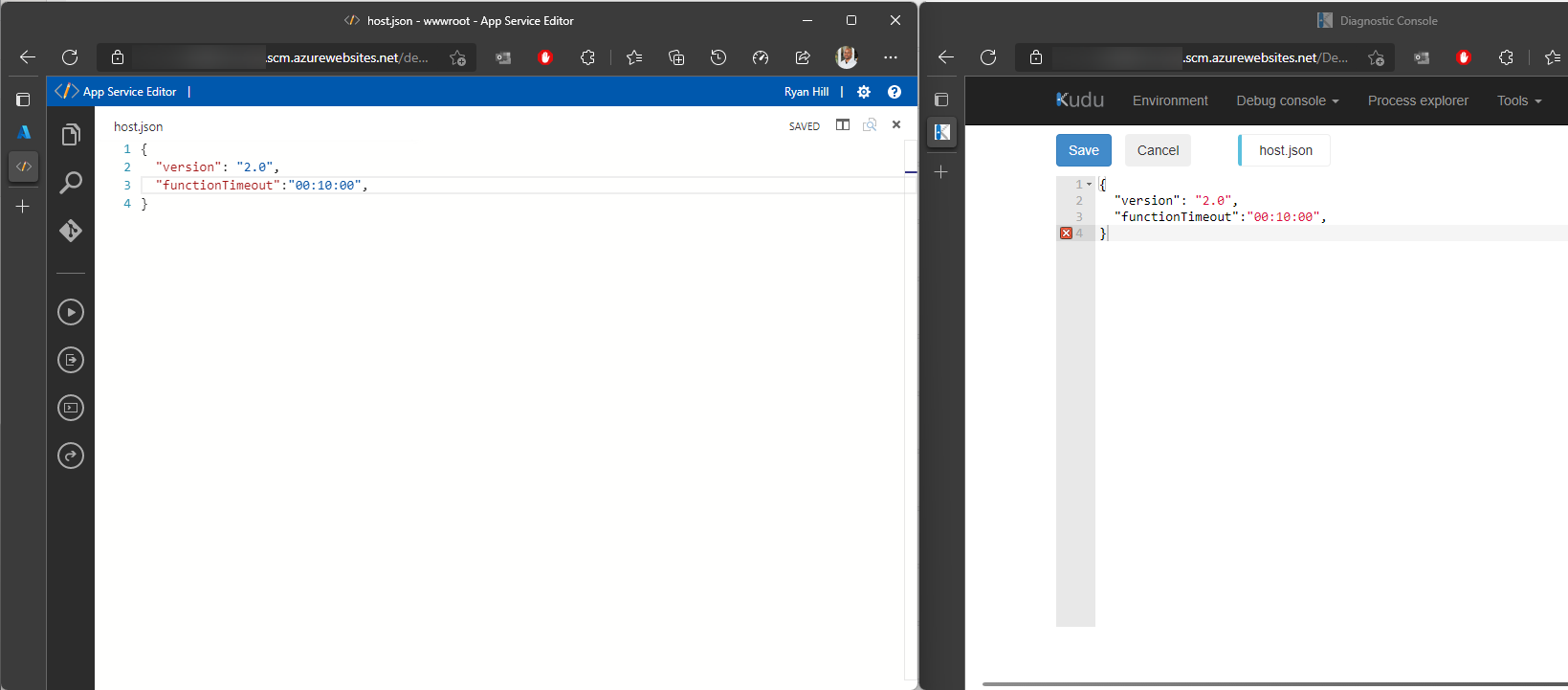@Dan Hickman , this sounds like a transient error to me. See if you can still access your Kudu console via https://{your-function-app}.scm/azurewebsites.net?
I am not sure how I can confirm the change to the host file.
On your Debug kudu console (https://{your-function-app}.scm/azurewebsites.net/DebugConsole/?shell=powershell), you can navigate to C:\home\site\wwwroot and the host.json file is there.

Any advice or thoughts?
You could have a downstream dependency that has shorter timeout, e.g. a database connection. You can leverage Application Insights Dashboard to see what dependencies would be causing the invocation to timeout. Feel free to comment any logging snippets down below if you're still stuck.
